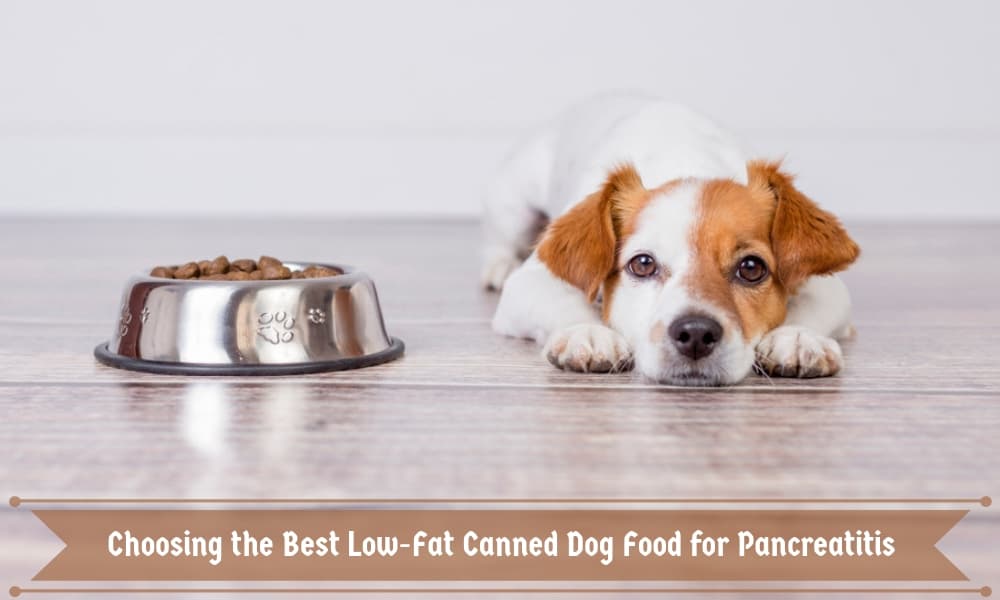
Pancreatitis is a common disease in dogs that, sadly, is often overlooked. When one of your furry friends has pancreatitis, there are ways to treat it. There are a lot of interventions and, although there is no guarantee that it will go away, there is a good chance that your dog will recover and may become healthier in the process.
Contents
What is Pancreatitis?
The pancreas has many important functions, including creating the enzymes necessary for digestion. It also produces insulin, which helps regulate the metabolic rate and blood sugar levels. Pancreatitis occurs when the pancreas becomes inflamed, resulting in digestive enzymes going to the wrong place and preventing the pancreas from functioning as it normally would. There is no way to prevent pancreatitis, but it is more prominent in older dogs and those that are overweight. An influx of fatty food consumption is also a factor.
There are two types of pancreatitis – acute and chronic. Acute pancreatitis develops suddenly and chronic pancreatitis which develops over time. Symptoms of pancreatitis are not always visible, which means that taking your pet to the vet if you notice any changes in behavior is very important! When left untreated, pancreatitis can be detrimental but, usually, pancreatitis is caught sooner rather than later which gives you plenty of time to set up a treatment plan for your pet.
Chronic pancreatitis may be a potential side-effect of obesity. When your dog is overweight, they are not getting the amount of exercise needed to work off fat gained from overeating. Obesity is linked to pancreatitis because of the amount of excess stored in their bodies. Although there are many other reasons that pancreatitis occurs, it is still curable if is caught early enough.
Prevention
Although there is no way to prevent pancreatitis from developing, you can take precautions to mitigate the risk. Don’t feed them an excess of fatty foods or human foods, like bacon and other red meats. Many veterinarians say that pancreatitis usually develops because of the over-consumption of fatty foods deemed unhealthy for your dog.
Table scraps are a good example of foods that are not healthy for your dog, but sometimes you can’t help but give your dog a little treat. That’s okay but remember quality over quantity. Just like humans, an excess of fats and sweets can lead to diabetes or other health risks. You should always treat your dog like you treat yourself. Even though we love seeing our furry friends happy, think about what it does to them in the long run.
Allowing your dog to eat solely dog food ensures that they are getting all the nutrients they need. Your dog may not agree with the diet at first but, trust us, it will be better for them in the future.
Adjusting Your Dog’s Diet

Both acute and chronic pancreatitis require treatment. Some might be more vigorous than others depending on how severe the disease is. Without treatment, pancreatitis can lead to life-threatening complications so listen to your vet!
Pancreatitis is difficult to cure longterm if you do not adjust your dog’s diet. A dog’s diet is one of the easiest ways to keep them healthy and happy. Once your dog is diagnosed with pancreatitis, remove any fatty foods which means no more table scraps! It might be hard for you to resist their cute puppy eyes but it is crucial that you do not give in because you’re doing what is best for them.
Dietary management for pancreatitis includes choosing foods that are low-fat highly-digestible and taking in plenty of fluids. It’s important to choose a high-quality dog food with a significant amount of nutrients. Over time, your dog’s pancreas may recover. Here are a few ways you can adjust your dog’s diet to help:
- Adjust feeding time. Create a feeding schedule for your dog. This mitigates the risk of your dog constantly eating which overworks their pancreas.
- Strict diet. Do not under any circumstances feed your dog leftovers or scraps. Excess treats do more harm than good. Remember, you are in control. Train your dog so that they won’t steal food from off the counter and stop begging for food.
- Exercise. Take your dog on a walk three times a day. This helps your dog get used to frequent exercise and also allows them to work off the calories that they’ve eaten. This is especially helpful if your dog is overweight. Pancreatitis is serious and is often linked to obesity so it’s important to give them plenty of playtime or exercise!
- Calculate your dog’s calorie intake. It may seem excessive but it is important to know where all your dog’s calories are going! You never want to have too much or too little because that can offset their nutritional balance.
- Feed your dog the recommended amount. Even if it takes measuring cups, do it! Think about your dog and how much pain they are in. Feed them the recommended amount of food for their weight to ensure that they are not getting more food than their pancreas can digest.
What to Look for in a Low-Fat Canned Dog Food
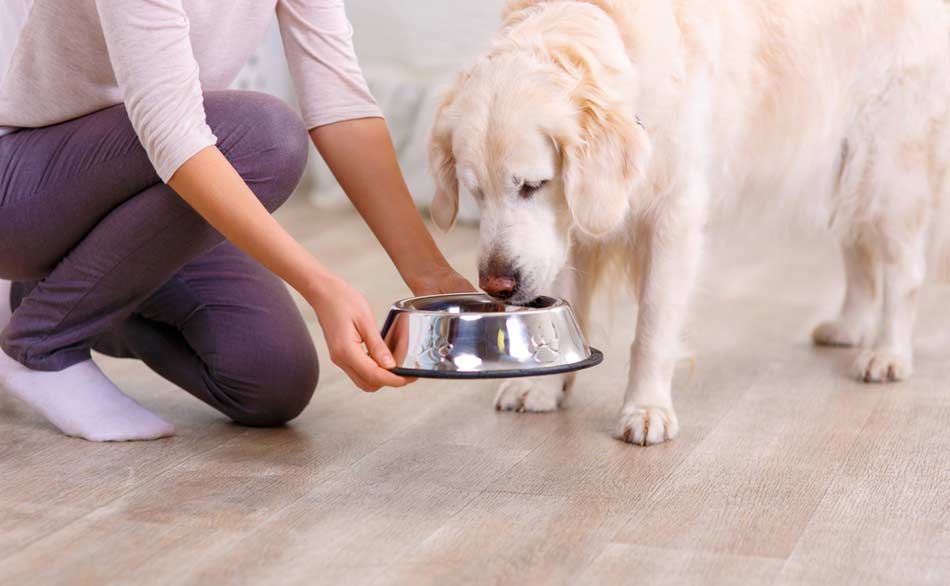
To choose the right dog food, choose one that is high in protein since to make up for that loss of fat. Look for a recipe high in animal protein and digestible carbohydrates with low-to-moderate fat levels. Feeding your dog low-fat canned dog food with lots of nutrition to help them heal as well as prevent any flare-ups if your dog has had a past history with pancreas problems.
Most dog foods range anywhere between 20% to 40% of fat. Although canned dog foods typically have a higher fat level than regular old ones, consider that canned dog food is easy to eat for dogs and can be mixed with kibble.
Veterinarians suggest dog food with a fat content of 10% or less which can alleviate the problem of that caused pancreatitis to develop in the first place. Here are some more things to consider when purchasing food to combat pancreatitis:
- No artificial additives. Make sure that anything you get for your furry friend is all-natural with the best ingredients. Added preservatives inhibit your pet’s ability to digest food and can do more harm than good, even if there is minimal fat. Added chemicals and flavors can also irritate your dog’s digestion and make it worse – potentially causing further damage and inflammation to their already fragile pancreas.
- Easily digestible ingredients. Low carb dog foods are easily digestible because the molecules are smaller than high carb ingredients so they’re easier for the digestive enzymes to break down. Whole foods are always better than by-products because they’re easily digestible and can be metabolized quickly.
- Complete nutritional balance. Fat is a big part of your dog’s diet. Lowering the amount of fat in dog food can also lower the nutritional value. Make sure you find foods that are not only low-fat but also have all the necessary vitamins and minerals that your dog needs. Antioxidants are great, especially because it helps strengthen your dog’s immune system.
- Real animal protein. Many dog foods contain animal by-products or food by-products in general which are difficult to digest. Proteins make up for the lack of fat and help your pet if they are also battling obesity, which could have been a cause of pancreatitis. Some proteins also take a while to digest so finding premium ingredients that are easy to digest is best. Your dog will thank you!
Three Best Canned Dog Foods
1. Hill’s Prescription Diet Low Fat Canned Dog Food
Hill’s formula is meant to manage challenging digestive health problems. Many dogs suffering from pancreatitis or who are experiencing digestive challenges are very particular when it comes to food. They deserve the best and Hill offers clinically proven and highly digestible nutrition for them. This product requires a veterinary prescription because it can be potentially harmful to dogs with a healthy pancreas and digestive system.
Key Benefits:
- Clinically proven with highly digestible nutrition
- Antioxidants to help support the immune system
- Prebiotic fibers for beneficial bacteria growth
2. Royal Canin Veterinary Diet Gastrointestinal Low Fat Canned Dog Food
Canin’s formula helps dogs digest heavy fats and still feel healthy. It is rich in antioxidants to support both the digestive system and the immune system. This formula contains a good combination of high-quality protein and low to moderate fats as well as minerals and vitamins which to improve your dog’s overall health. A blend of prebiotics is also added to maintain a healthy balance of good bacteria in your dog’s gut which is great for digestion.
Key Benefits:
- Prebiotics for good bacteria
- Diet made for dogs with trouble digesting fat
- Helps with digestive issues
3. Purina Pro Plan Veterinary Diets EN Gastroenteric Formula Canned Dog Food
This formula is made to be easily digested. It is made with an abundance of high-quality ingredients such as oils, antioxidants, and prebiotic fibers that promote healthier digestion and offers dietary benefits that provide nutrition while catering to your dog’s every need.
Key Benefits:
- Nutrient absorption
- Digestible
- Low carbohydrates and moderate amounts of fat
I grew up in a household that was filled with animals. I believe that my fate as a dog-loving person was sealed in early childhood since my parents owned several dogs of varying sizes and breeds. There was no choice but to take care of and learn about dog habits and the best animal care practices — otherwise, I’d be clueless about how to go about the creatures I was surrounded by day and night.
As a life-long puppy lover, I know a thing or two about dogs and how to go about caring for them in the best way possible. Although I’m not a professionally trained dog behaviorist, trainer, or veterinarian, all of my knowledge and experience with canines comes from a place of love and a deep-rooted passion for dogs and animals in general.
Seeing as dogs kept me company throughout every stage of my life, I decided to follow a different path in my academic life and obtained a Bachelor’s and Master’s degrees in Marketing Management and Digital Advertising, which ultimately allowed me to combine my professional training and personal experience by creating the ultimate dog lover’s resource website! Along with my husband, Dave, I run MySweetPuppy for like-minded dog lovers who want to have a single, clear, and reliable information source about anything and everything related to dogs and their well-being.

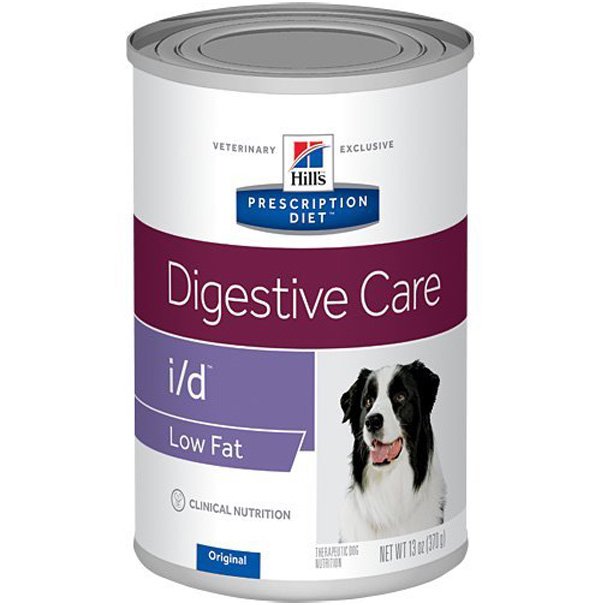
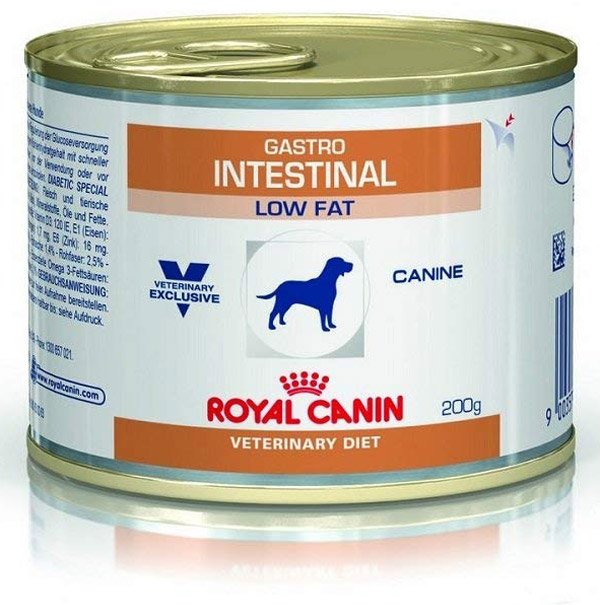
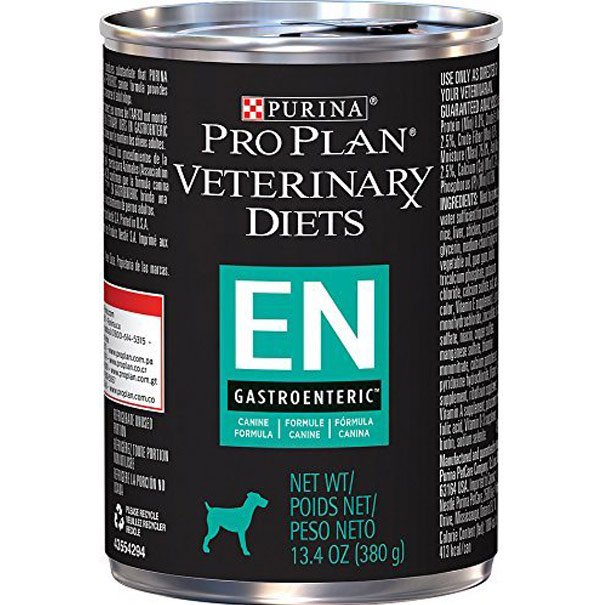
![The Best 4 Low Sodium Dog Foods [2021 Buyer’s Guide]](https://mysweetpuppy.net/wp-content/uploads/2015/12/low-sodium-dog-food1.jpg)
